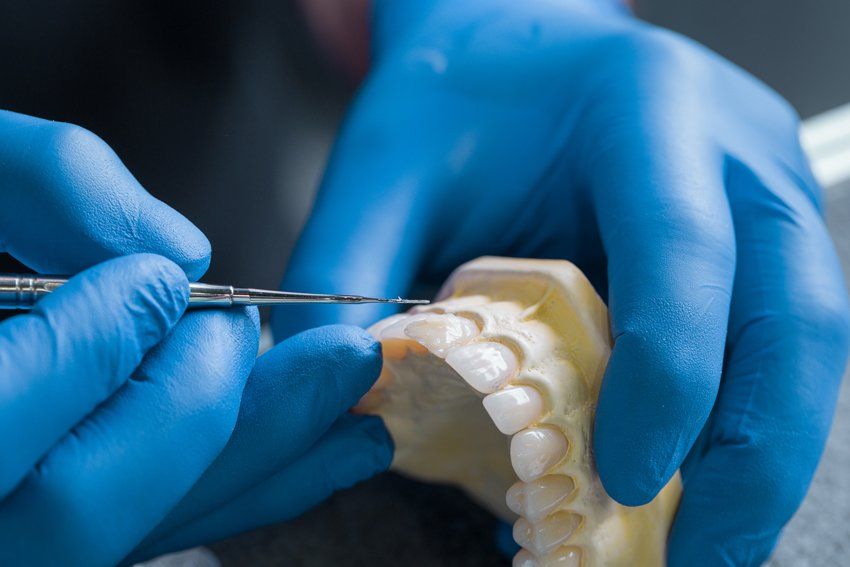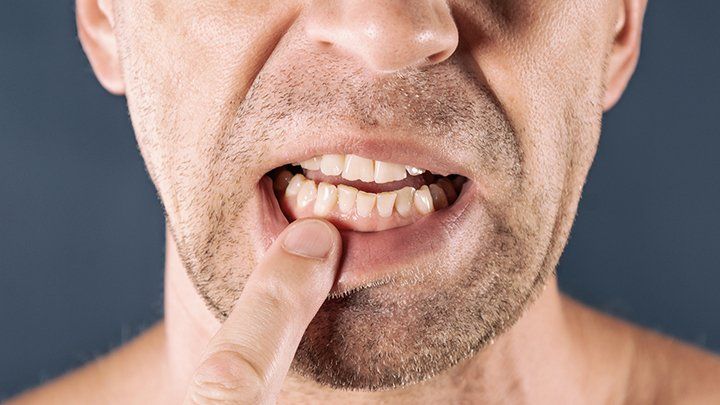Questions About Dental Restoration Maintenance, Repair, and Replacement
- By Admin
- •
- 01 Sep, 2020
- •

Modern dental restorations can do a remarkable job of optimizing your smile, chewing function, and overall health and wellness. However, even with the durable materials and sophisticated techniques available today, restorations can and do fail after years of reliable service.
If you have crowns, fillings, implants, veneers, or dentures, you should know what to expect from these restorations and their upkeep. Check out these common questions (and answers) on restoration maintenance, repair, and replacement.
How Long Do Dental Restorations Last?
The lifespan of a dental restoration will vary according to factors such as whether you grind your teeth, what kinds of foods you typically eat, and how carefully you maintain the health of surrounding teeth and gums. The material chosen for the restoration will also make a difference.
Fillings usually last several years before coming loose, wearing down, or developing fractures that call for replacement. Composite fillings typically last up to seven years, while silver amalgam fillings can often last for 15 years and gold fillings can last for decades. Permanent crowns offer 15 to 25 years of service.
Dentures and bridges can deteriorate after years of wear and tear. Both kinds of appliances can easily withstand five or more years of use before requiring adjustment or replacement, with bridges continuing to work well for up to 15 years. Veneers can hold up for a decade or longer, while bonding may last only four years.
Dental implants aim to provide a lifetime of permanent tooth replacement and function. assuming that you maintain your oral hygiene and have no underlying health complications, the titanium posts can last indefinitely. However, you may need to replace the crowns on them just as you might have to replace other crowns.
How Do Dentists Replace Bad Tooth Restorations?
Dentists can replace many dental restorations quickly and easily. For example, if you lose a filling or have to have a broken filling removed, the dentist will remove any additional decay before adding a new filling. Replacement of bonding or veneers simply involves the removal of the old material and installation of new material.
Removal and replacement of a permanent crown takes somewhat more effort. The dentist must first cut the old crown into sections, removing one section at a time from the underlying enamel. Although the original tooth has already undergone shaping to receive a crown, the dentist may need to reshape it slightly before proceeding.
When Can You Modify a Restoration Instead of Replacing It?
Some dental restorations only need repairs or modifications to keep them viable. For instance, a structurally-sound permanent bridge may need nothing more than new porcelain or a new pontic (the artificial tooth that sits between two permanent crowns).
Denture wearers usually find that their appliances lose their fit periodically due to ongoing changes in jawbone density. Dentists can reline a denture by adding extra cushioning material to its inner surfaces. You might need to have your dentures relined every five to 10 years. Larger jawbone changes may require denture replacement.
How Can You Protect Your Dental Restorations?
Proper care can help you extend the useful life of your dental restorations. First and foremost, you must protect the health of underlying or surrounding teeth and gums through regular brushing, flossing, and dental exams. A restoration can last only as long as the structures underneath or around it.
Dental restorations wear down for the same reasons that natural teeth do. If you suffer from bruxism (chronic tooth grinding or clenching), seek professional assistance in getting this problem under control, as it may promote premature crown, bridge, or denture wear.
While dental restorations can help you enjoy many foods that might have proven painful or impossible before, you should still exercise good sense when eating. Try not to bite or crunch on hard foods or ice cubes, which might wear down or fracture your restorations. Avoid foods and drinks that might stain your restorations.
Whether you need to have a denture plate relined, replace a lost filling, or undergo more extensive dental restoration work, Teresita V. Hernandez, DDS, can provide skilled, compassionate dental care. Book an appointment through our website or contact us directly with any questions.

Teresita V. Hernandez, DDS
4612 Jefferson Highway Jefferson, LA 70121
Phone:
504-733-9800 (Voice Mail)
504-939-9801 (Text Messages)
Fax: 504-733-9805
Email: tvhern1dds@gmail.com
Office Hours:
Wednesday-Saturday, 11
a.m.-4 p.m.
We monitor calls 24/7. Please leave a message during business hours, and we will respond ASAP.














